Despite the hustle and bustle of modern life, many Vietnamese families enjoy hanging Dong Ho folk woodcut paintings during the Lunar New Year holiday (Tet).
When Tet comes, next to the red parallel sentences, people always hang Dong Ho folk woodcut paintings, a genre of Vietnamese folk painting originating in Dong Ho village of Bac Ninh province. However, not everyone understands the meaning of these artworks.
The images on the paintings are very familiar to people’s everyday life, such as pigs and chickens. By hanging the paintings, people want to send their best wishes for the new year, sometimes for well-behaved children, lots of grandchildren, or for full blessings.

Dragon procession: The Dragon has become a mascot of the Vietnamese people for years that is associated with the fairy tale of “The Dragon and the Fairy” of the Vietnamese nation. The Dragon is also a symbol and represents both the authority of nature as well as in society.
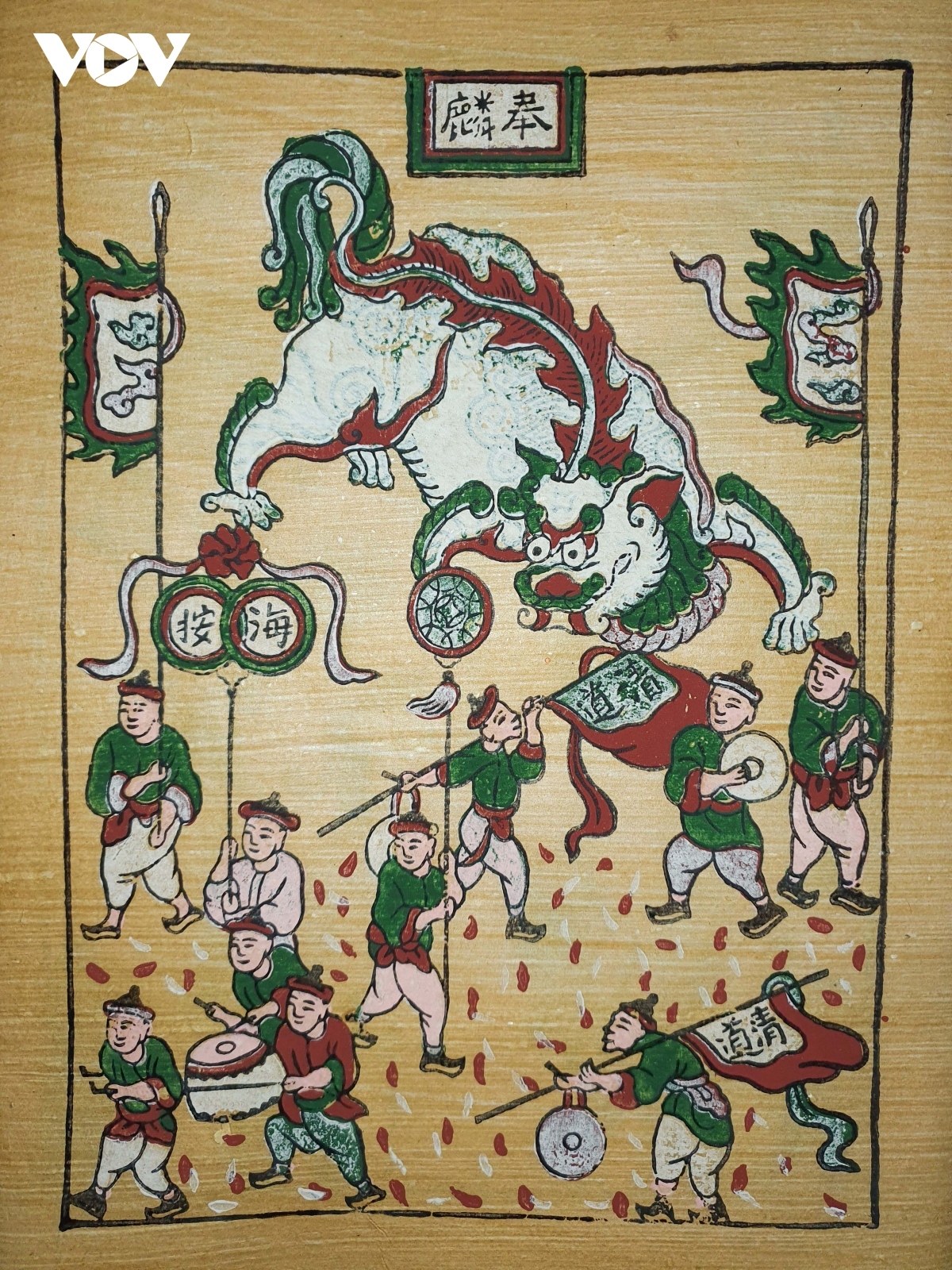
Lion dance: Lion dance is often performed on special occasions such as the Lunar New Year or Mid-Autumn Festival, because the image of the lion symbolizes prosperity and prosperity.
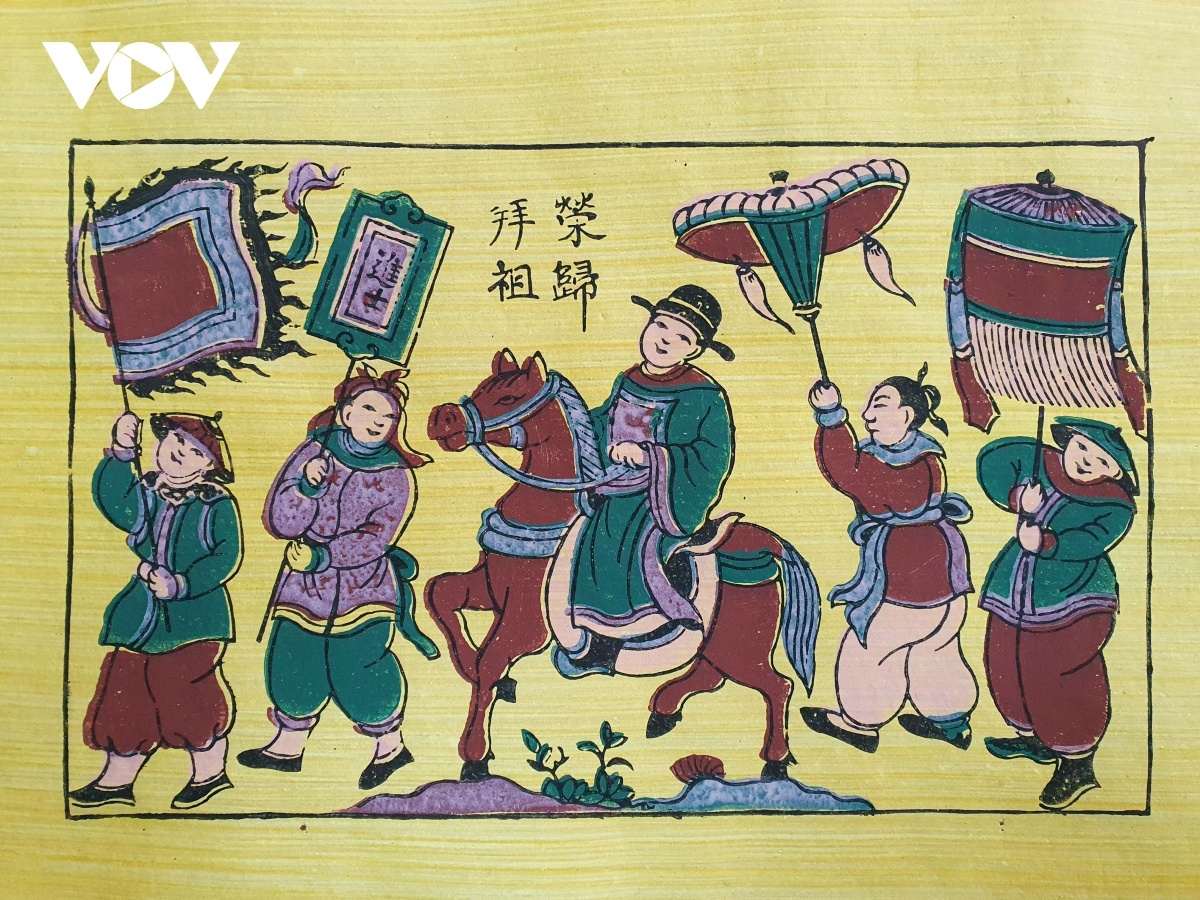
“Vinh Quy Bái Tổ” is a reward honoring those who pass exams in the past. It’s time for new graduates to express their gratitude to parents and teachers.

Tiến Tài – Tiến Lộc: On each picture is a deity, with one hand holding a scroll symbolizing education, and the other hand holding a scroll symbolizing divine power. The couplet represents ancient farmers’ wish to be supported by the God of Wealth.

Eminence - Prosperity: The couplet expresses people’s wish to enjoy wealth, many children and grandchildren, and perfect happiness.
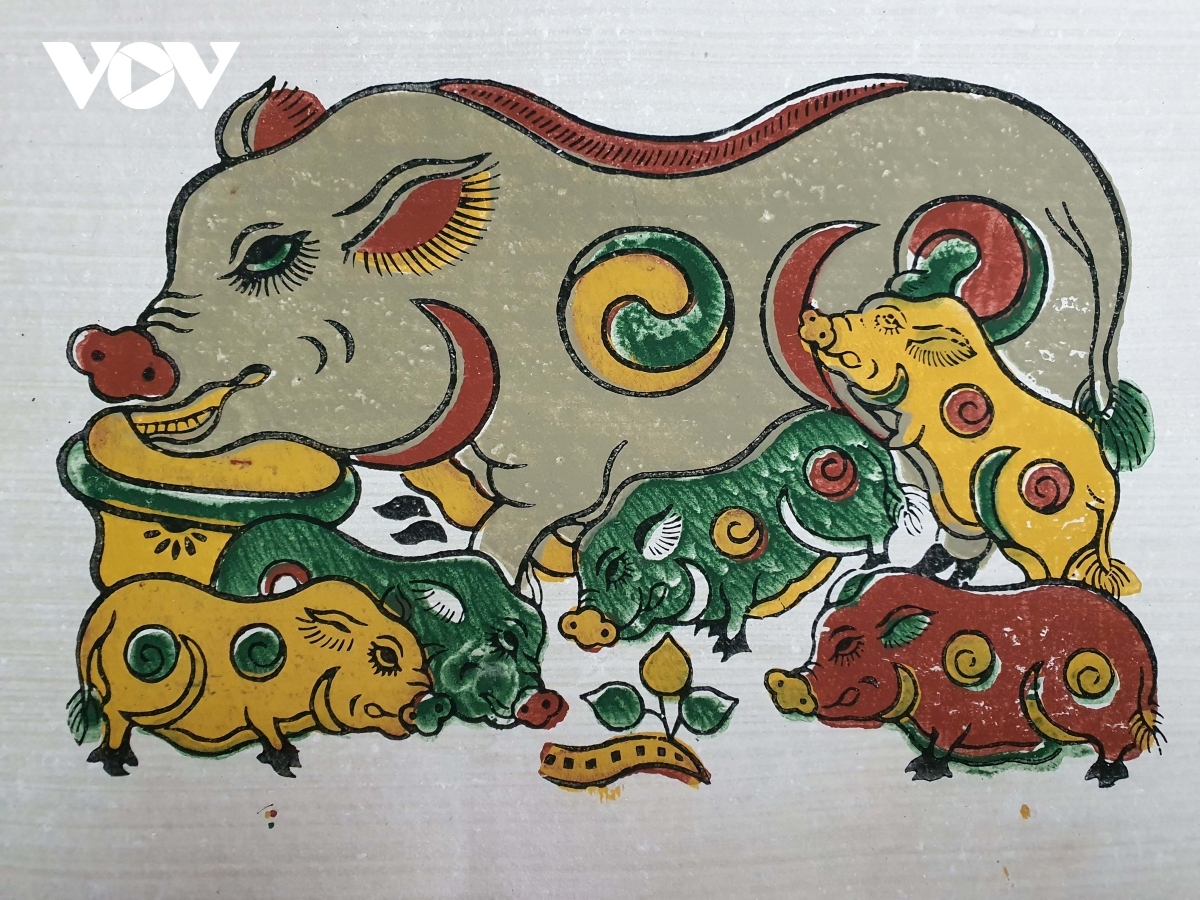
Yin-Yang Pigs: According to ancient beliefs, the pig is the most beautiful animal, symbolizing prosperity and well-being; The image of the yin and yang vortex on the pig’s body represents fertility. People hang the painting in the belief that the new year may bring them good fortune and many children.
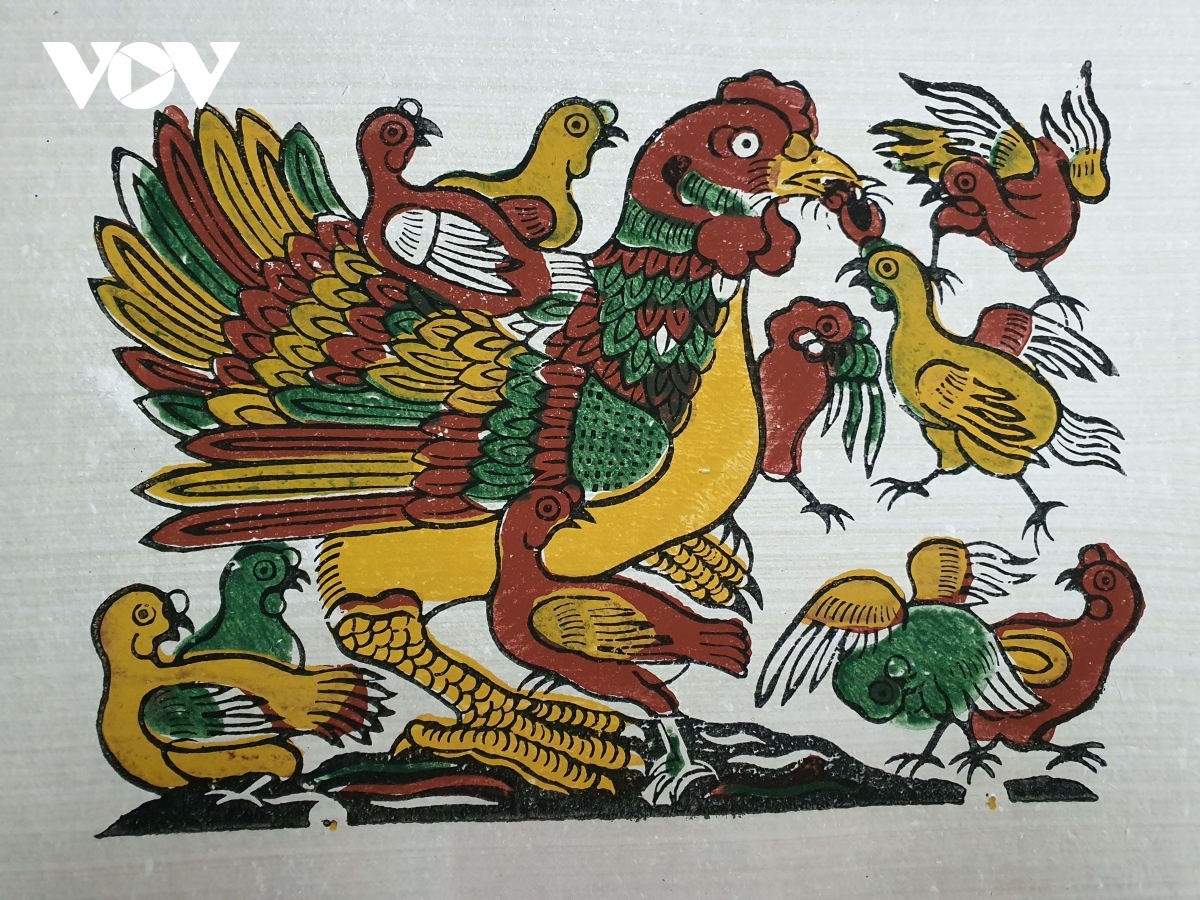
Chicken: People hang the painting in the belief that they will have a happy family with many healthy children and grandchildren.

Lễ Trí - Nhân Nghĩa: This is a couplet of famous Dong Ho folk paintings preferred by many people. The pair also have other names “Beautiful girls carry green turtles”, and “Talented boys hold purple toads.” In the Lễ Trí painting, people expect their children will be polite in social behaviour, and be intelligent in in future. Meanwhile, in the Nhân Nghĩa painting, people expect that their children will study well.

Peacock dance: The painting expresses people’s wish to live in peace. The painting also means repelling demons and praying for prosperity and peace in life.
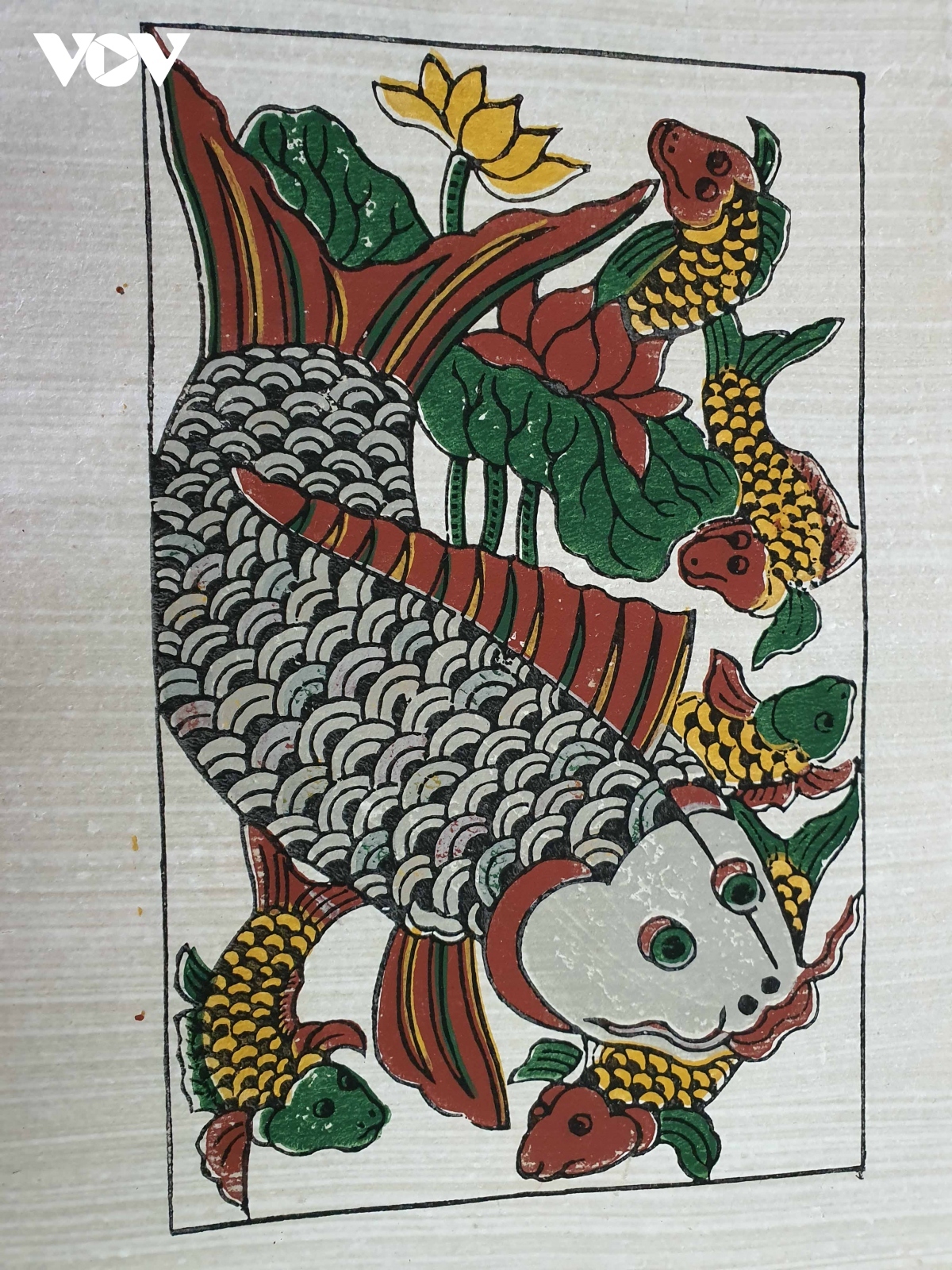
Lý Ngự Vọng Nguyệt: This painting is often specially hung during Tet in houses where people have to take exams that year. The painting implies that the students will study hard and then successfully pass the exams. It looks as if the carp can swim well and pass heaven’s gate to become the dragon.

Phúc Lộc - Song Toàn: Thí painting represents the great happiness that people wish to have in life. It also conveys the desire for peace, success, luck, happiness, and fulfillment in life.

Blind Man’s Bluff: This painting vividly simulates a folk game that reflects the true life of Vietnamese people in rural areas.
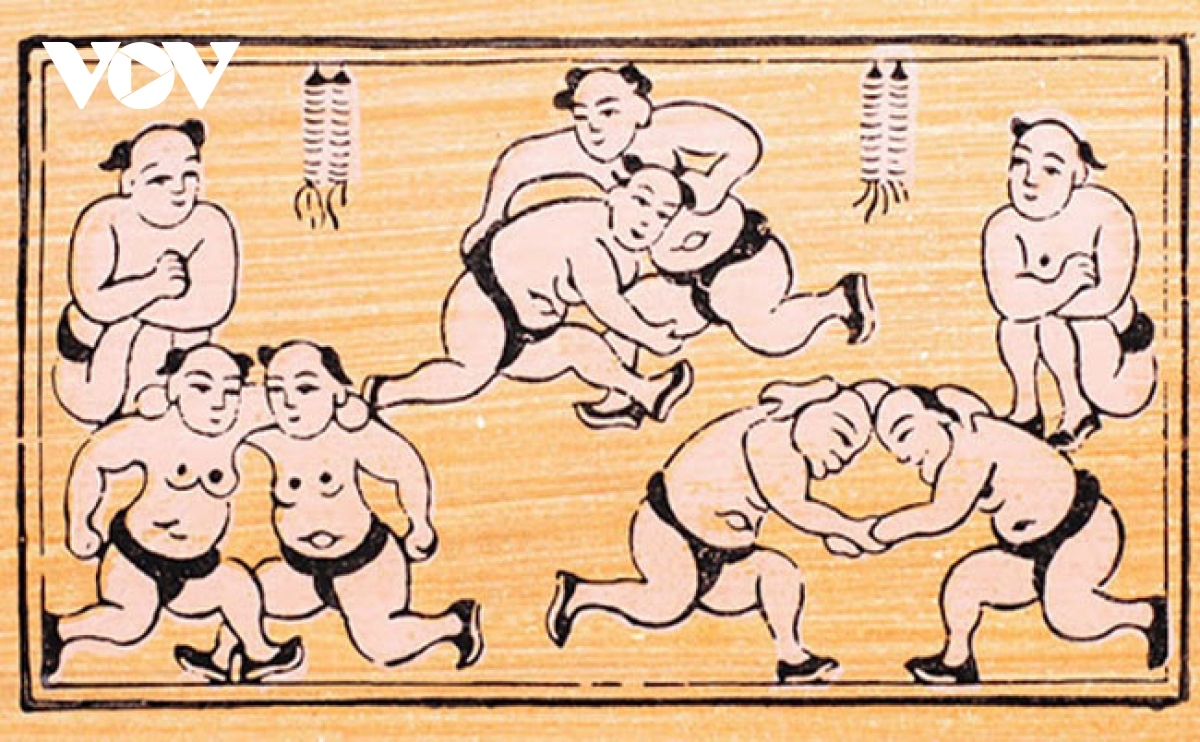
Wrestling: Wrestling is a sport game that is held in Vietnamese villages during the spring. Wrestling demonstrates human strength, as well as the martial spirit of the nation.

Swinging: The painting expresses the harmony between heaven and earth and farmers’ wishes for favourable weather and bumper crops in the new year. The game also shows young couples’ pure love and aspirations to fly high in the future.

Quan Họ Folk Songs: Quan Họ singing in northern Vietnam is common at rituals, festivals, competitions and informal gatherings, where guests will perform a variety of verses for their hosts before singing farewell. The songs express the spirit, philosophy and local identity of the communities in this region, and help forge social bonds within and between villages that share a cherished cultural practice.